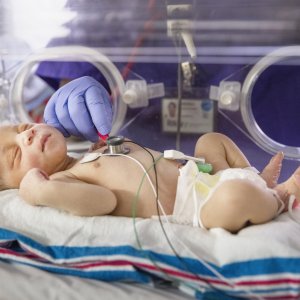It’s called Rsv, respiratory syncytial virus, and families who have encountered it are unlikely to forget it. Because Rsv mainly affects newborns, fragile children and the elderly. It is not forgotten because the disease that the virus causes, bronchiolitis, is a serious illness, which requires hospitalization and which caused the death of 16 children last season. Deaths avoidable with passive immunoprophylaxis with a monoclonal antibody that is administered only once and protects for the entire season. Already approved by the EMA, the European authority, it has been approved by Aifa in band C and price negotiation now begins.
Bronchiolitis, first protocol for the management of serious newborns

The hope is that it will be done quickly and that the Regions will buy it. Precisely to try to bypass what has now become a regional diversity in the facts of our healthcare system, the scientific societies’ proposal is that this drug – which is not a vaccine – be included in the vaccination calendar which could become a prevention calendar. Therefore valid for everyone and everywhere.
The flu-bronchiolitis-Covid triad increases hospitalizations of children. How to protect them
by Elena Bozzola


Since the numbers are high, and the disease is preventable, the appeal is to hurry, be ready for the next autumn season, when Rsv will strike again. For this reason, in Rome, in the Senate, a Manifesto was presented by the Alliance for a childhood free from RSV. It includes 5 scientific societies (Sip, Sin, Simri, Siti, Hta), patient and representative associations (Federasma, Cittadinanzattiva, Forum of family associations, Vivere Ets), institutions, with the contribution of Sanofi. Objective: to prevent RSV infections and its complications in the first months of children’s lives, complications which have a significant economic impact on the NHS and devastating for families.
Covid, flu and Respiratory Syncytial Virus, how to protect ourselves from the ‘triad’ that accompanies the cold months
by Elisa Manacorda


Some numbers: every year it is estimated that the RSV epidemic season involves – out of 400,000 one-year-old children – 230,000 health events requiring medical intervention, more than 15,000 hospitalizations and 16 deaths. Globally it is the leading cause of care for respiratory infection under one year of age. New generation monoclonal antibodies offer passive immunization in a single dose. “It’s a great advantage – he specifies Luigi Orfeo, president of Sin Neonatologists – and because today we have to resort to an antibody that must be repeated 5 times and instead having one to be administered only once is a great advantage. Even in economic terms. because with 5 vials we spend around a thousand euros and a single administration is expected to cost around 230 euros. Furthermore, including this antibody in the Calendar would help with a homogeneous and fair distribution throughout the territory, without the discretion of the Regions, because it is a separate chapter of expenditure”.
Rsv is our Covid
Agrees Rino Agostiniani, vice-president of Sip, Italian Society of Paediatrics. “RSV is our Covid – he states – and as with Covid the fragile ones go into crisis, and the fragile ones are those born preterm and the youngest, who need a high care load. For 4-year-old children, RSV is like a cold, the problem is whether they transmit the virus to their newborn sibling or grandparent. There is a vaccine for the elderly, but unfortunately few people do it. This antibody is administered once for the entire season, and some studies even extend the protection to a whole year.”
Who to administer it to
Which children should be given the new antibody and how? “The idea is to cover all newborns from October to the end of March, before leaving the hospital, therefore within a few days of life – continues Agostiniani – and to recall those born from April onwards in October to cover the epidemic period. This virus, like the flu, has its peak in winter and circulates little in spring-summer. The ideal would be to call through the family paediatrician, both for children born out of season and also for vaccinations, but there is a strong regional difference, which we hope to overcome with the inclusion in the Calendar of this antibody which is not a vaccine, but a passive antibody protection, i.e. it is we who provide the defense tools, and not our immune system which develops them as for the Vaccine”.

